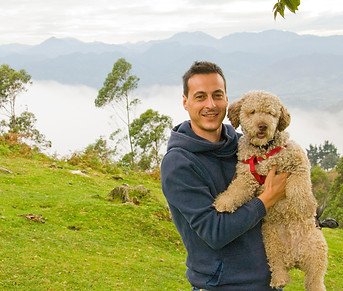David Canal
Researcher - Talent Attraction (CAM-CSIC) fellow

I am interested in the evolutionary processes underlying phenotypic and life-history variation in natural populations.
My main research line focuses on the causes of variation of individuals’ mating strategies -principally, extra-pair paternity and social polygamy-, and the subsequent impact of these strategies on individual fitness. During my PhD, I also investigated the effect of individuals’ genetic diversity on fitness-related aspects such as survival or reproductive success.
Recently, I have started a set of studies focused on personality and behavioral plasticity. Behavioral traits are interesting because, compared to morphological or life-history traits are extremely flexible, being able to respond to sudden alterations in the environment rapidly. Currently, I am using collared flycatchers (Ficedula albicollis) and bruchid beetles (Callosobrochus maculatus) as model species to shed light on questions such as whether individual differences in the components of behavior are heritable or related to fitness.
During my career, I have also been interested in conservation problems and thus, I have collaborated in projects investigating the effects of human activities on the demography and dynamics of wild populations.
MY LATEST RESEARCH

The study of host–parasite co-evolution is a central topic in evolutionary ecology. However, research is still fragmented and the extent to which parasites influence host life history is debated. One reason for this incomplete picture is the frequent omission of environmental conditions in studies analyzing host–parasite dynamics, which may influence the exposure to or effects of parasitism. Wwe took advantage of 25 years of monitoring of a breeding population of pied flycatchers, Ficedula hypoleuca, in a Mediterranean area of central Spain...
Population genetics is an invaluable tool for studying and conserving scarcely researched and elusive threatened species. The Chaco eagle (Buteogallus coronatus) is one of the rarest and most severely threatened raptors in the Neotropical region, and due to its elusiveness, many aspects of the species' life history, with important conservation implications, remain mostly unknown. Relying primarily on non-invasive DNA sampling at a large spatio-temporal scale, we investigate the reproductive strategies of the Chaco eagle....
